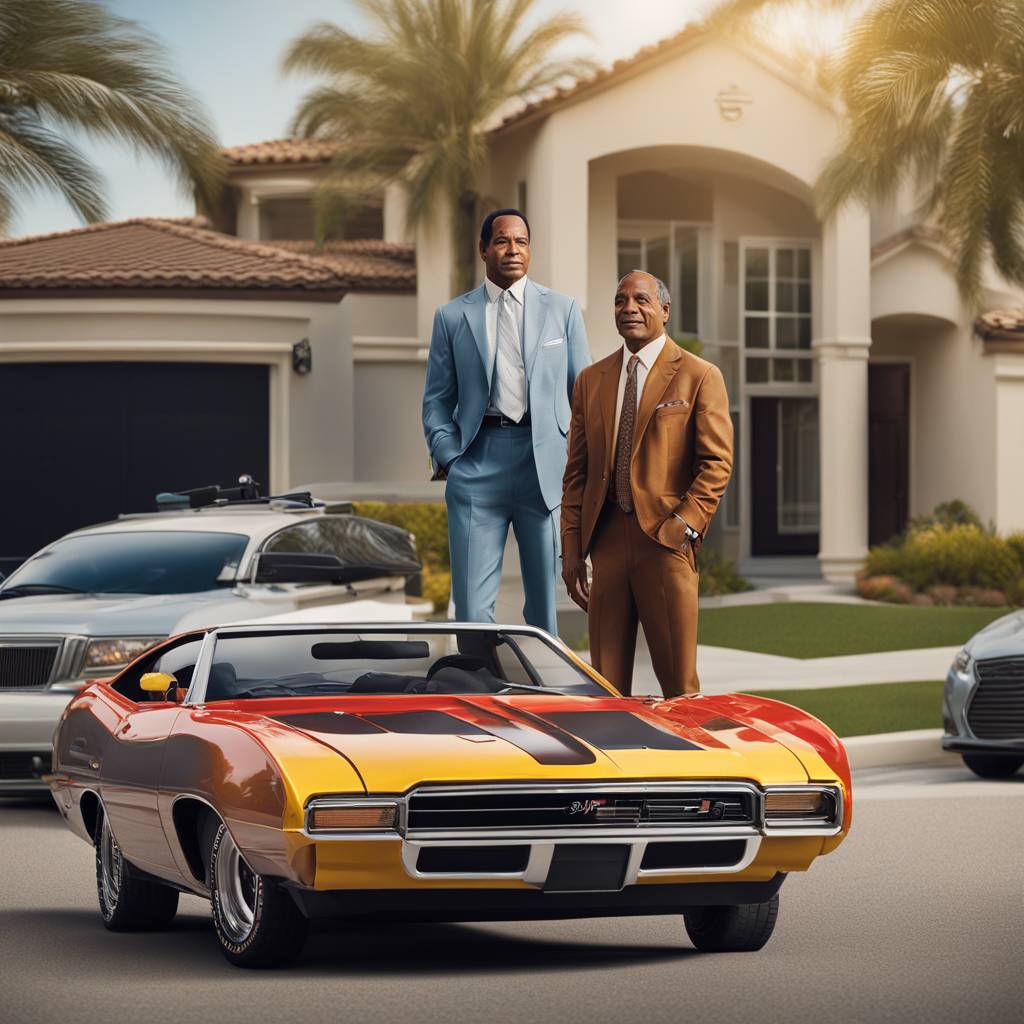In the 1970s, executives at Hertz rental car company decided to promote their business as fast, reliable, and efficient, qualities that they believed were embodied by football player O.J. Simpson. Simpson became the first Black star of a national television advertising campaign for the company, with a slogan highlighting him as the “Superstar in Rent-a-Car.” Known for his athleticism and speed on the football field for USC and the Buffalo Bills, Simpson’s portrayal in the ads racing through airports and leaping over barriers widened his stardom beyond sports and offered him as a suave, smiling promoter to football fans and businessmen alike.
The success of Hertz’s advertising campaign with Simpson opened doors for him to secure more endorsements in other industries, such as sporting goods, soft drinks, and razor blades. Simpson’s appeal to a wide audience was noted, as he remarked that people found him likable and colorless, avoiding political or religious controversies. Hertz initially hesitated to use a celebrity in their advertising, as their customer base was predominantly white men, but Simpson’s achievements as a Heisman Trophy winner made him an attractive choice for customers who shared his drive for success.
In 1994, Simpson’s public image changed dramatically when he was charged with the murders of his ex-wife, Nicole Brown Simpson, and her friend, Ronald L. Goldman. Although acquitted in a criminal trial, he was found liable in a civil trial and ordered to pay damages to their families. Hertz stopped featuring him in ads during this time, as the public perception of Simpson shifted. Despite the controversy, the partnership between Simpson and Hertz had been lucrative for both parties, driving up sales and profits for the company while elevating Simpson’s fame and career opportunities.
Over the years, Hertz shifted its advertising strategies and slogans, partnering with other celebrities like golfer Arnold Palmer and quarterback Tom Brady. However, Simpson remains closely associated with the company, having played golf with company leaders, attended events, and hosted parties for top customers. The successful collaboration between Simpson and Hertz was so strong that chief executive Frank A. Olson personally negotiated with Simpson, even during times of controversy such as Simpson’s assault charge in 1989. Olson and Simpson both passed away on the same day, leaving behind a legacy of a partnership that boosted sales, profits, and fame for both entities.
Despite the eventual tarnishing of Simpson’s reputation due to the murder trial, Hertz’s association with him during the peak of his career was instrumental in their successful marketing campaigns. Simpson’s charisma and athletic prowess helped him transcend sports and become a recognizable figure in the advertising world. The Hertz campaign featuring Simpson not only increased the company’s visibility and profitability but also cemented Simpson’s status as a household name, opening doors for him in other industries beyond football.








